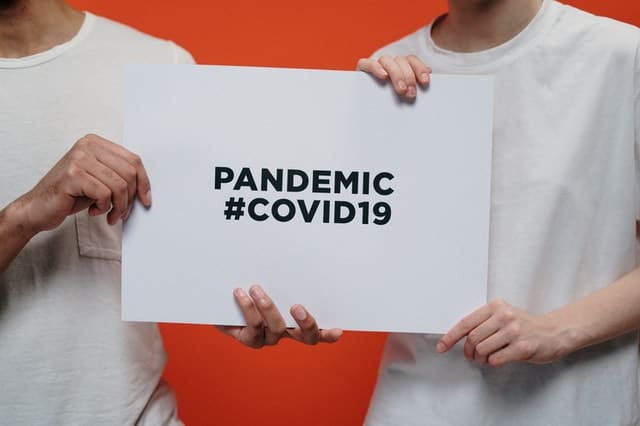Contents
First things first, you are reading this article because you are concerned about the effect a Corona or corona type disease might have on you and your dependents.
So, let’s be absolutely clear about three things,
- The chances that you or one of your loved ones becomes infected is very small. We shall outline some of the reasons for believing this and some of the precautions you can take to make the chances even smaller.
- A corona type (2019-nCoV) disease is NOT a pre-existing condition of any current policy. In the unlikely event of you or any of your dependents covered by your policy requires hospitalization the cost will be met by your plan.
- Airline passengers on direct and connecting flights from affected areas are being screened for signs or symptoms of the disease caused by the Coronavirus. Outbound travel from affected cities in China is banned to restrict the spread of the disease and the consequent risk of an epidemic.

How concerned should I be about Coronavirus?
The CDC (Centers for Disease Control) do not yet have consistent statistics for the virus causing concern in China and other parts of the far East. It is too soon to make substantive predictions. Any new disease represents a new threat and joins the host of illnesses we face individually and as a population.
For example, between October 1st 2019 and January 11th (the American ‘Flu season) estimates suggest that there have been
- 13,000,00o-18,000,000 flu illnesses
- 5,900,000-8,500,000 flu medical visits
- 120,000-210,000 flu hospitalizations
- 6,600-17,000 flu deaths
We use these statistics to illustrate that reported occurrences of the corona type disease we call ’flu result in a less than %1 fatality rate.
BUT
NOBODY wants to take risks they can avoid.
Coronavirus Symptoms
Corona type diseases are ‘flu like’ diseases and infections are air born. It makes sense, to be even more attentive to the precautions we take to avoid catching and transmitting flu – frequent hand washing (20 seconds, with soap), careful control of sneezing and coughing and, of course, disposal of tissues etc.
Coronavirus infection is similar to a common cold (‘flu) and typically affects the throat and lungs. Symptoms include sore throat, mild headache, and fever, cough, and cold. The fever can last over two days. If the infection is severe, your doctor may call for hospitalization; the cost of which will be covered by your health insurer.
On the evidence available so far, the number of cases that result in fatalities is low, and in the main limited to individuals with existing viral illnesses or cardio vascular conditions. The elderly are clearly at greater risk than younger people with healthy immune systems.
The Centers for Disease Control (CDC) issued the following statement
“While the CDC considers this (2019-nCoV) to be a serious public health concern based on current information, the immediate risk to the general public is considered low at this time. Never the less, CDC is taking proactive preparedness precautions.”
I need to travel – What should I do? How can I protect myself?
- If you are traveling within the US there should be no problem, you are at no greater risk than catching ‘flu. You should take the same precautions. If you are traveling abroad you may be limited by federal restrictions. Don’t travel unless your intended destination is unaffected by the coronavirus alert. Always remember that you will be screened on your return.
- The most reliable method of protection is frequent, thorough handwashing, especially in public spaces. You may even want to take your own brand of soap with you but remember, if you fly, take a bar (not a liquid!)
- Check with your Health Insurer. Are you traveling outside your network? They can’t cancel your plan but you may want to add a supplement! Call us to know more:
I am a regular carer for an elderly/chronically ill relative/friend. How can we minimize the risk to each other?
- First, in all circumstances, the best protection is careful handwashing.
- Secondly, it is sensible for both parties to wear good quality facemasks.
- Finally, in the event of serious concern, you should not hesitate to obtain appropriate permissions to talk to a physician.
What else can I do to prevent Coronavirus infection?
You should be confident that unless the situation changes radically the chances of individual contamination is extremely low.
For most people, the precautions we have noted above will minimize the risk of infection.
Of course, you should avoid physical contact with individuals you know to come from an infected area like China. They themselves will either be quarantined or under strict instructions to avoid physical contact with higher-risk individuals such as seniors, young children or anyone with pulmonary, respiratory or other chronic conditions.
Finally, We do encourage anyone who is aware of a family member, a friend or colleague who is suffering the anguish of waiting for the ‘ALL CLEAR’ to use any electronic means they have, to provide support and comfort.

